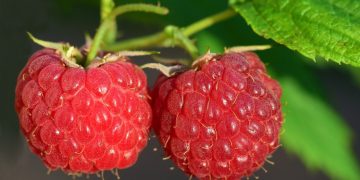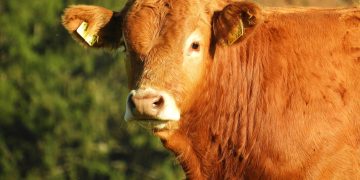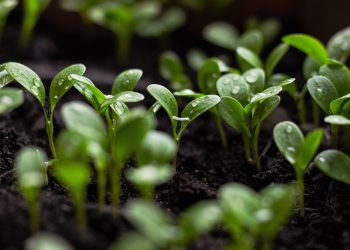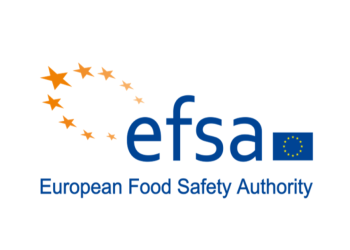[Fonte: EuropeanSeed] For centuries, seed varieties and seed production techniques have required continued improvement to meet the critical challenges of growing populations, climate change and depletion of natural resources. Many plants themselves developed defensive mechanisms, such as ability to instantly irritate skin and eyes, cause burning sensations or kill insects, to be able to protect themselves from being eaten. Food production techniques changed as well to meet many competing demands and priorities.
Today we are once again at the point where we have to rethink how we produce and consume food. Indeed, the United Nations (UN) Sustainable Development Goals (SDGs) for 2030 ‑ in which food security is central — sets important goals that we are committed to attain. We are working towards a world where poverty and hunger are eradicated, and food is sufficient, safe, affordable and nutritious for all. Since 2010, sustainable development has been mainstreamed into EU policies and it was integrated into the cross-cutting priorities of the Juncker Commission in 2014.
The UNs ‘One Health’ vision links health, food safety and the environment to food security. Against this backdrop, the UN General Assembly named 2020 the International Year of Plant Health. Plant health is critically important to guarantee food security and stable and sustainable ecosystems. It is a key part of the EU’s food policies.
Current challenges
With climate change and a growing world population, food security has become a key concern. According to recent research[1], global food production is already under pressure. There are concerns that crop yields are stagnating in Europe and they are projected to decrease further under future climate conditions, including for some main cereal crops.
Resources are also under pressure. More food needs to be produced with fewer inputs and on less land as other land uses take precedence and fertile land becomes scarcer. Consequently, we urgently need to improve plant varieties to make them more resistant to diseases and abiotic and biotic stresses, more tolerant to drought or flooding, and nutritionally enhanced. Innovation plays an essential role in this and the EU should be a leader in this area, promoting innovation while ensuring a high level of safety.
EU seed legislation and sector
Since the end of the 19thcentury, and particularly after the two world wars, food security has been a priority in Europe. Initially EU countries developed rules on seed quality to ensure agricultural and food production but since the 1960s, internal market rules have been gradually harmonised. The first Directives on marketing and producing cereal and fodder plant seeds were published in 1966.
Today, there are over 43,000 varieties of agricultural and vegetable species authorised for marketing in the EU via the common catalogues of varieties. This number is constantly increasing. Next year, we will celebrate 50 years of the Common Catalogues. On the R&D front, it must be noted that EU plant breeding companies invest up to 20% of their annual turnover into research, making it one of the most R&D intensive sectors.
Every year, certified seed is produced on over two million hectares in the EU. France, Spain and Germany are the lead producers. The value of the EU seed market (field crops and vegetable seed) is estimated at between €7 and 8 billion. The EU is the largest seed exporter worldwide. European exports to the rest of the world reached €7.8 billion in 2017 (+10%), with a trade surplus of €2.2 billion.
Innovation in plant breeding is incentivised under the EU’s Community Plant Variety Rights regime. This was set up to grant intellectual protection for the creation of new plant varieties that could benefit society. The regime has been run by the Community Plant Variety Office (CPVO) since 1995. Currently around 27,300 plant variety rights are registered for over 2,000 different plant species (44% ornamentals, 29% agricultural crops, 18% vegetables and 9% fruit plants).
Since the 1990s, the EU has had a legal framework in place to ensure that development of modern biotechnology and genetically modified organisms (GMOs) takes place under safe conditions. The legal framework aims to protect human and animal health and the environment by requiring an authorisation and stringent safety assessment before any GMO is released into the environment. The GMO legal framework also ensures consumers and operators are informed thanks to the traceability requirements and labelling of GMOs and their food and feed products placed on the market.

Small and medium-sized enterprises (SMEs) are the backbone of Europe’s economy, particularly in the agri-food sector. In the seed sector, thanks to the legislation in place, a high number of SMEs are active in the EU compared to many other developed countries. However, certain mergers in the seed industry have led to concerns about market concentration and its potential effects on prices, product choice, and innovation.
A recent OECD study analyses the situation and shows how policy makers have several levers besides competition policy to ensure an innovative and competitive seed industry. The European Commission considers SMEs and entrepreneurship as essential for economic growth, innovation, job creation, and social integration in the EU.
This is also the case for the UN Food and Agriculture Organisation (FAO). It sees small and medium enterprises (SMEs) as essential partners to achieve key sustainable development goals and has called for support for innovation in this area.
The importance of plant breeding
A study published in 2016 by HFFA on“The economic, social and environmental value of plant breeding in the EU” stressed its economic importance. It shows that the EU’splant breeding activities in the last 15 years have resulted in numerous benefits for the economy, the environment and society.
This includes a 74% increase in total productivity (equal to a yield increases of 1.24% per year) and over €14 billion to the EU’s GDP since 2000. Plant breeding has also ensured the availability of carbohydrates, proteins and vegetable oils to feed between 100 and 200 million people.
At the same time, it helps to reduce greenhouse gas emissions — about 3.4 billion tons of direct CO2emissions have been avoided. Through plant breeding and higher yields of major arable crops, Europe has also been able to prevent biodiversity loss. Without it, an additional 19 million hectares would have been needed as farmland in the last 15 years.
Plant breeding also has advantages for consumers, increasing diversity and variety to suit a range of eating habits.
While the private sector plays an important role, the public-private partnerships and public sector can also promote R&D initiatives aimed at more sustainable and resilient food production.
Innovation in plant breeding
Plant breeding is essential to meet new challenges and cater for changing needs. For plant breeding in the EU to continue and remain internationally competitive, innovative technologies and approaches should be promoted and broadly accessible. This includes – importantly – making it accessible to small private and public organisations. At the same time, the EU’s famously high level of safety must continue to be guaranteed.
Let’s be frank, there are numerous visions in the EU as to how far we can and should go to use innovation in agriculture. Innovative breeding techniques are one example, supporting positive progress. They attract particular interest for their potential to introduce useful targeted traits in plants without introducing foreign genes.
The most prominent and rapidly evolving techniques include targeted mutagenesis, also referred to as “gene editing” techniques. They show great potential for a broad range of applications in the agri-food sector (e.g. to improve drought tolerance and fatty acid composition in soybean, disease resistance and reduced browning in potatoes, improved growth and feed conversion in fish). They can also be valuably applied in the health sector (in gene therapy and for studies of disease mechanisms). These techniques also allow us to progress much faster – developing new breeds in just in two or three years compared to classical techniques which might take over 10 years.
The new GMOs?
Debate on new breeding techniques is intense. Sometimes dubbed by their opponents as the “new GMOs” who raise concerns over their safety or simply reject their use in European agriculture for various reasons including ethical issues, other stakeholders nevertheless point out the advantages and benefits offered by these techniques.
A legal input took place last year, when a ruling of the Court of Justice of the EU in July 2018 stated that current legislation on the deliberate release of GMOs applies to organisms obtained by new mutagenesis techniques. Since then, the Commission services have been discussing the implementation of the court ruling with Member States’ experts. The Commission has engaged in a dialogue with the Member States on this important file: they were asked to submit information on challenges and solutions to implement and enforce the GMO legislation as the court has interpreted it. Though numerous meetings have already taken place at technical level, at this stage, only the Netherlands have, so far, adopted a formal government position, calling for a debate on the future of EU biotechnology policy and the need to adapt it to technical and scientific progress.
Still in 2018, the Group of Chief Scientific Advisors — which provides independent advice to the European Commission — issued a statement in the October following the court ruling. It said that new scientific knowledge and technical developments mean that existing GMO legislation is no longer fit for purpose and requires revision. It urges a more inclusive discussion on how we want our food produced in the EU.
The debate has also engaged the scientific community extensively. Many scientists believe that products obtained through new breeding techniques should not be subject to the legislation governing GMOs, stressing in particular that EU farmers and breeders will not benefit from scientific progress and improved varieties.
It is now a well-known fact that I have been defending a strong position on this debate in recent months. Speaking at a Citizens’ Dialogue last autumn in Italy, I made it clear that we need to invest money, time and resources in new agricultural technologies. Europe simply cannot afford to give up and stay on the side while our main competitors will not! Unsurprisingly, some of the biggest producers of GM products (the United States, Canada, Brazil, Argentina) already acknowledge the role that these new techniques could play in addressing challenges in agricultural production. If the EU stays immobile, we might miss out on benefits and ultimately will be left behind. More importantly, the scientific facts speak for themselves. We know that these new breeding techniques can help us tackle key challenges such as food security and food intolerances. The potential seems endless, from improved agronomical characteristics to resistance to herbicides. Let’s take the example of low-gluten, non-transgenic wheat – which could be used to produce low-gluten food materials – recently developed through gene editing by researchers from Spain and the US. Or potatoes developed with a non-browning trait and producing less asparagine: these products shall not scare since they provide the potential for the formation of acrylamide to be reduced by 60-70% when potatoes are baked, fried or roasted at high temperatures.
I am a medical doctor; it is evident to me that research and innovation can bring important benefits to society. Science must be central when it comes to assessing the risks and benefits for humans, animal health and the environment. The Commission has recently mandated the European Food Safety Authority to assess whether current guidance for risk assessment is adequate to evaluate products of certain new mutagenesis techniques.
At the same time, we also need to take a broader perspective and engage in dialogue with all sectors of our society; we need to listen to those who express concerns and often worries about these scientific developments. The topic is important and of general interest and we have to address public concerns, especially regarding ethical values. In the coming months, additional scientific work and opinions are expected from EFSA and the European Group on Ethics in Science and New Technologies (EGE). The latter provides the Commission with high quality, independent advice on ethical aspects of science and new technologies in relation to EU legislation or policies. On the new breeding techniques, the European Commission has requested this group assess certain aspects of gene editing, in particular, how it is applied to animals and in the context of biodiversity and ecosystems, notably organisms engineered with gene drives.
These initiatives aim to collect expert views on the matter and put the issue in as complete and objective a context as possible.
This debate will probably continue for years and rightly so because science will evolve, and we will have to face new challenges. What seems important to me is that we continue talking, in full transparency, without locking ourselves in a biased view and stay open to each other’s opinions and concerns. This way we can move forward.
Editor’s Note: Vytenis Andriukaitis is EU Commissioner for Health and Food Safety
[1]PLOS ONE https://doi.org/10.1371/journal.pone.0217148 May 31, 2019




















































Discussão sobre este post